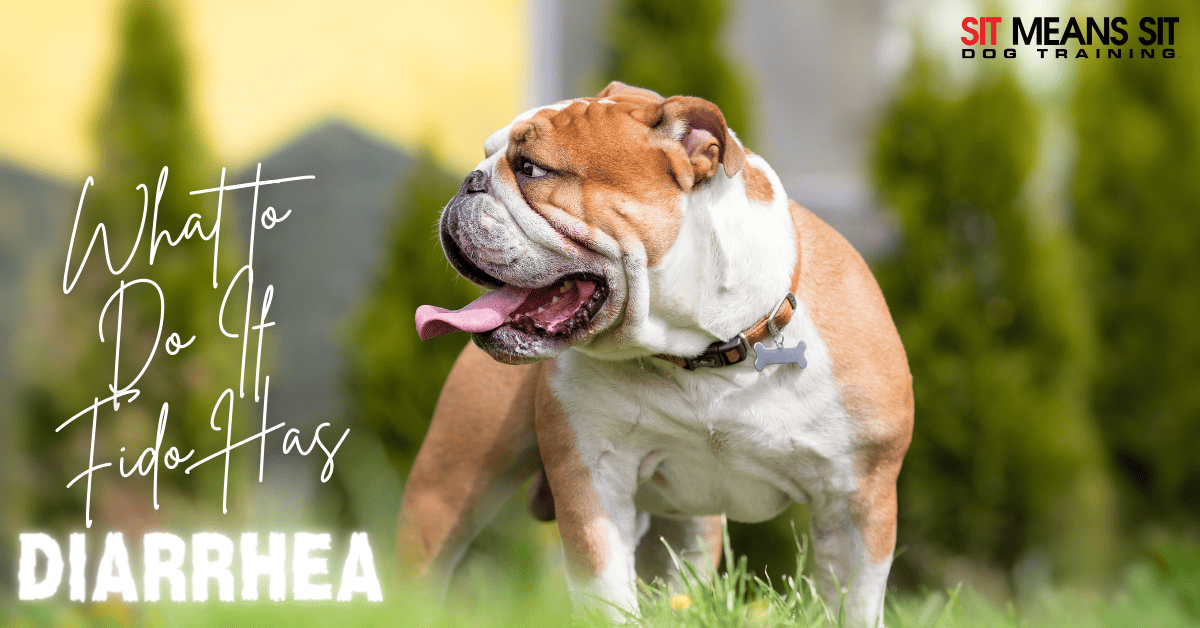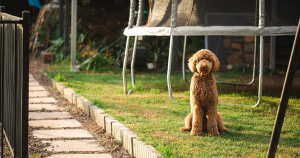
What to Do If Your Dog Has Diarrhea
As a dog owner, you’re bound to encounter various health issues with your furry friend; one common problem that can be distressing and messy is diarrhea! While an occasional bout of diarrhea is usually not a cause for alarm, it’s essential to know how to handle it to ensure your dog’s well-being and comfort. In this blog post, we’ll discuss what to do if your dog has diarrhea, including causes, symptoms, and steps for at-home care.

Understanding Diarrhea in Dogs
Loose, watery, and frequent bowel movements characterize diarrhea in dogs. It can range from a mild inconvenience to a severe condition, depending on the underlying cause and how it’s managed. Several factors can contribute to diarrhea in canines, including:
Dietary Upset: Sudden changes in your dog’s diet or consuming spoiled food can upset their stomach and lead to diarrhea.
Food Allergies or Sensitivities: Some dogs may have allergies or sensitivities to certain ingredients in their food, which can trigger diarrhea.
Infections: Bacterial, viral, or parasitic infections in the digestive tract can cause diarrhea. Common culprits include salmonella, parvovirus, and giardia.
Stress or Anxiety: Dogs can develop diarrhea due to stress, anxiety, or environmental changes.
Medication Side Effects: Certain medications or treatments can have gastrointestinal side effects that result in diarrhea.
Recognizing the Signs
The first step in addressing your dog’s diarrhea is recognizing the signs. Common symptoms include:
Frequent Bowel Movements: If your dog has more bowel movements than usual and is loose or watery, it’s a clear sign of diarrhea.
Straining: Your pooch may appear to be in discomfort while trying to pass stool.
Blood or Mucus: If you notice blood or mucus in your dog’s diarrhea, it’s a cause for concern, and you should seek immediate veterinary attention.
Lethargy: Diarrhea can lead to dehydration, which can cause your dog to become lethargic or weak.
Vomiting: In some cases, diarrhea may be accompanied by vomiting.
Steps to Take If Your Dog Has Diarrhea
Monitor Your Dog: Keep a close eye on your dog’s condition. If the diarrhea is mild and your dog is otherwise active and healthy, you can try some at-home remedies.
Modify Their Diet: Temporarily switch to a bland diet, such as boiled rice and boiled chicken, to ease their stomach. Gradually reintroduce their regular food once their stools have firmed up.
Hydration: Ensure your dog has access to fresh water at all times. Diarrhea can lead to dehydration, so keeping them well-hydrated is essential.
Probiotics: Consider giving your dog a probiotic supplement designed for dogs. Probiotics can help restore the balance of healthy gut bacteria.
Consult Your Veterinarian: If your dog’s diarrhea persists for more than 24-48 hours, is accompanied by other concerning symptoms, or if your dog is very young, very old, or has preexisting health issues, consult your veterinarian. They can diagnose the underlying cause and recommend appropriate treatment.
Follow Veterinary Advice: If your vet prescribes medication or recommends additional tests, follow their advice diligently. Timely treatment can prevent more severe health issues.
